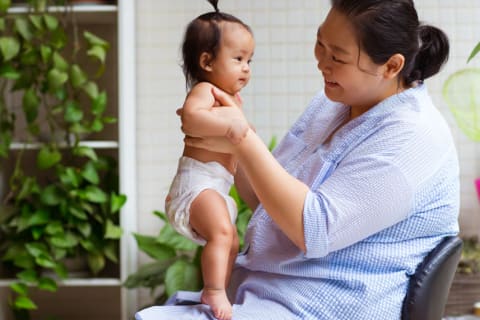In traditional Chinese medicine, the belief is that after a woman has a baby, there is an empty space in her body where the baby once was. Her body is open, her ligaments loose, and it’s believed that if “yin” or wind/cold comes into this open space, it will cause future ailments and prevent the body from properly recovering. Thus, the practice of confinement emphasizes staying warm by remaining indoors and abstaining from cold foods/drinks, from touching cold objects, and from washing one’s hair lest one catch a chill. All of this is done during the period when the mother’s body “closes back up,” so to speak. For the full list of confinement rules—see here. The first week focuses on foods meant to flush out the remaining placental blood; the second week incorporates collagen- and iron-rich soups, often made with organ meat, to rebuild the mother’s body; and the third week focuses on foods to encourage a healthy milk supply. Chinese herbs are added to these nourishing meals. But what truly solidified my conviction to follow the practice of confinement postpartum was my interview with doula, sexologist, and author of The Fourth Trimester: A Postpartum Guide to Healing, Kimberly Johnson. “Right now our culture is showing us what happens when we don’t take care of women after they have babies,” she explained to me. “Sixty-seven percent experience marital decline, 86 percent have pelvic floor dysfunction, one in seven have postpartum depression—and all of these things are not necessary if the right care is given to mothers. When women are cared for postpartum, it’s been found in studies the rate of postpartum depression is reduced to 1 percent.” During our conversation she cited various cultures around the world with postpartum practices similar to China’s confinement practice, but when I asked why there wasn’t something like this in Western culture, her answer: the Industrial Revolution and our love of the term “badass.” “We did have it once,” she explained. “It was called ’lying in,’ and it happened up until the turn of the last century, but things changed once midwives stopped overseeing births and the Industrial Age happened. After that we became a culture that worships productivity, and resting during the postpartum period is not productive. It is if you look at it in the long term, which is what Chinese medicine is so good about since they see the benefit of slowing down in the short run to preserve life force and longevity down the line, but Western cultures only see the short-term productivity loss. We love the terms ‘badass,’ ‘girlboss,’ and ‘superwoman,’ and these terms are associated with not resting. Women get a lot of attention and positive praise for not stopping. So when you go back to work 10 days after having a baby, everyone is impressed, and it’s like no, that’s neurosis. The postpartum period is a time that needs to be respected.”



